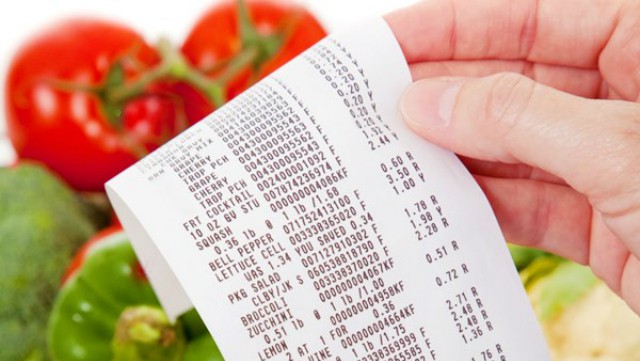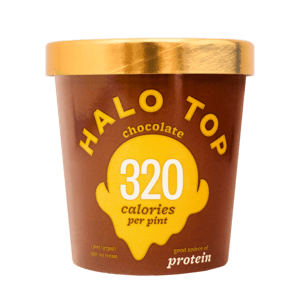Hai-Ting asks: “What exactly is water weight? It’s a phrase that gets thrown around a lot. I would love to know what we are talking about. How and why do we gain and lose so much water?”
If you are in the habit of getting on the scale every morning (a practice which is linked with healthier body weights over the long-term) you’ve probably noticed that your weight can vary wildly from day to day—in ways that sometimes seem unfair. “How could I have gained two pounds overnight? I had a salad for lunch and skipped dessert at dinner. I should weigh two pounds less!”
It’s tempting to think whatever we did or didn’t eat yesterday should show up the next day on the scale. But it doesn’t work that way. As Dan Ariely pointed out in our recent interview, it takes a lot longer for dietary changes to result in fat loss (or gain). If you gain or lose three or four pounds overnight, most of that is probably due to water weight.
This article is also available as a podcast. Click below to listen
Where is Water Weight Stored
Our bodies contain a lot of water, but we’re not just giant water balloons. Water is held in a variety of places in the body. Some of these don’t change very much from day to day. Our bones, for example, are about 30% water but that stays relatively constant.
Other compartments, such as our stomachs and bladders, can hold relatively large amounts of water, but only on a very temporary basis. And here’s the thing: Water is heavy. A pint of water (or, for that matter, beer) weighs about one pound.
If you were to weigh yourself, drink 16 ounces of fluids and immediately weigh yourself again, you’d have “gained” one pound in about 15 seconds. A couple of hours later, a lot of that water will be collected in your bladder. Weigh yourself before and after visiting the bathroom and you can enjoy the thrill of “losing” up to a pound in 15 seconds.
Obviously, the amount of fluid in your stomach and bladder have a fairly profound (yet meaningless) effect on your body weight at any given moment. But that’s not the only thing we’re talking about when we mention water weight.
In between the stomach and the bladder, things get a bit more complex. As it passes through the small intestines, the water we consume is absorbed into the bloodstream and distributed throughout the body’s organs and tissues, where it is used for all kinds of things, everything from lubricating our membranes to metabolizing nutrients to maintaining electrolyte balance. All of these activities affect the amount of water retained in our bodies.
Water is a major component of perspiration, for example. Heavy sweating can cause us to lose a lot of water weight in a relatively short period of time. Run a few miles on a hot day and jump on the scale before rehydrating and you’ll see how much water you’ve lost. (You probably won’t, however, see how much fat you burned.)
Water is also involved in lots of different chemical reactions. Some reactions—such as converting carbohydrates into glycogen—require water. Others—such as breaking down proteins—release water.
Sudden changes in the protein or carbohydrate content of your diet can either lock up or mobilize relatively large amounts of water.
How Diet Affects Water Weight
If you dramatically reduce the amount of carbohydrates you are eating, your body will be forced to dip into the glycogen stored in your muscles and liver for energy. As the glycogen is used for energy, a lot of water is released into the bloodstream and routed to the kidneys for elimination. Obviously, this has nothing to do with fat loss but it does give low-carb dieters a big sense of accomplishment during the first few days of their diet.
Even if you don’t go low carb, suddenly reducing your calorie intake will also force the body to use its glycogen stores and result in some water loss. The effect is just not quite as dramatic as it is with a low carb diet.
This effect is also completely reversible. As soon as you start eating more calories or carbohydrates, your body will use some of those carbs plus some water to restock its depleted glycogen energy stores, leading to an increase in water weight.
But these sorts of changes in water weight don’t represent changes in your fat stores. That’s going to have more to do with how many calories you take in and burn over the long term, not how many of them are from carbohydrates.
Although it takes a lot longer to lose fat than it does to lose water, there is a pretty big consolation prize: The resulting changes in your body size (and how your jeans fit) are much more durable. Having a piece of bread with dinner won’t undo them by morning.
How Kidneys Regulate Water Retention
Eventually, all the water in your body passes through the kidneys, which regulate how much water is either retained or eliminated in order to maintain the right amount of fluids and concentration of electrolytes. This process is directed by hormones released by the pituitary and adrenal glands.
Any health condition that affects the kidneys or the glands that secrete these hormones can cause this delicate balancing system to go awry—causing excess water retention. Less alarming but still frustrating is the temporary water retention that many women experience before their period, due to fluctuations in hormone levels.
What Foods and Nutrients Reduce Water Retention
There’s not too much we can do about our hormones. But there are a few dietary factors that we can control. Eating a lot of salt, for example, can cause the kidneys to keep more water in circulation in order to dilute the extra sodium. Reducing your sodium intake (or, paradoxically, increasing water intake) can help reduce water retention.
It may also be useful to increase your intake of green vegetables. In addition to being high in water, they are also good sources of magnesium and potassium, which may help relieve water retention. In particular, dandelion greens and asparagus are known to have diuretic properties.
As tempting as it might be, I don’t recommend using diuretic supplements or teas to get rid of water weight, except as directed by a health practitioner. Overdoing it with diuretics can lead to dehydration and electrolyte imbalances, which can be potentially serious.
The Quick and Dirty on Water Weight
Water weight can come and go for a variety of reasons, but most are temporary and not related to long-term changes in body fat. Don’t get too freaked out (or impressed) by big swings on the scale. A moving average calculator can help smooth out those meaningless ups and downs and reveal what’s really going on with your weight.



 Piper writes:
Piper writes: There’s a lot of buzz about collagen peptide supplements these days. Collagen is a structural protein present in the skin, joints, hair and nails. The gradual loss of collagen as we age can make the skin look less plump. The idea is that collagen supplements can replace some of that lost collagen and improve the look of the skin.
There’s a lot of buzz about collagen peptide supplements these days. Collagen is a structural protein present in the skin, joints, hair and nails. The gradual loss of collagen as we age can make the skin look less plump. The idea is that collagen supplements can replace some of that lost collagen and improve the look of the skin.